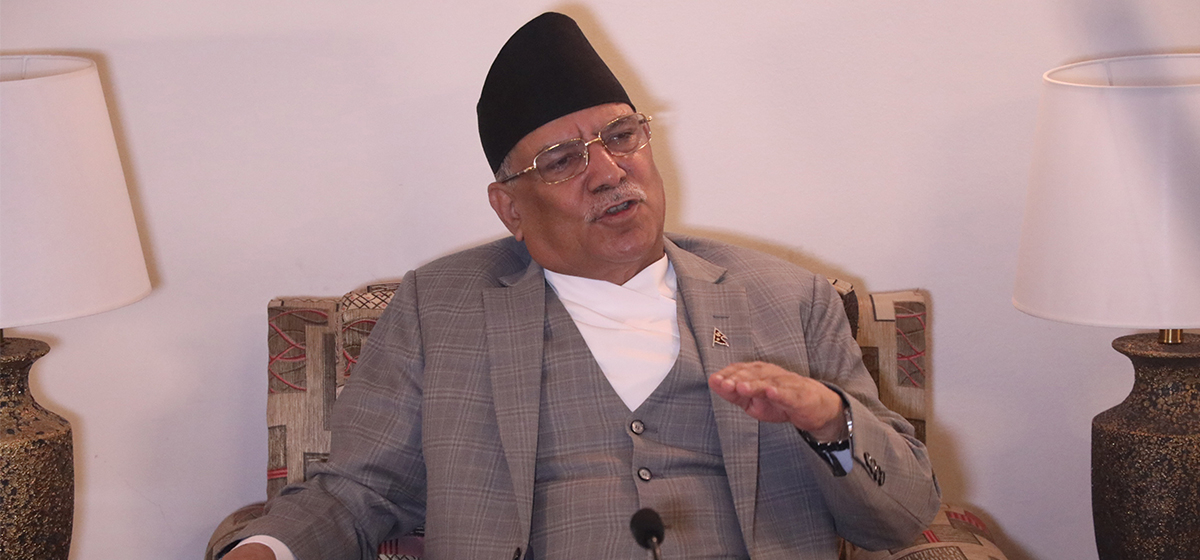
OR
Govt preparing to revise list of essential products
Published On: November 26, 2019 09:46 AM NPT By: Republica | @RepublicaNepal
KATHMANDU, Nov 26: The Department of Commerce, Supply and Consumer Protection Management is preparing to revise the list of essential commodities to ensure smooth supply, price stability and adherence to quality standards.
The Essential Commodities Control Act has included 29 products under essential list. These include rice, maize, wheat, millet, barley, flour, pulses, oil seed, sugarcane, sugar, cotton, petroleum products, iron products, cement, salt, medicines and major spare parts of transport vehicles, among others.
Netra Prasad Subedi, director general of the department, told Republica that the department was preparing a draft to revise the list of essential goods as social and economic importance of these products have changed over the years. “With people’s changing consumption pattern and lifestyle, we felt there is a need to revise the list,” added Subedi.
Giving example of kerosene, which used to be of one of the largely consumed products, Subedi said that the department would finalize the draft and forward it to the line ministry within a week.
The constitution has defined the availability of essential goods and consumer protection under fundamental rights. The Consumer Protection Act 2018 also talks on allowing the government to revise the list essential goods and services from time to time. “The government shall fix the maximum retail prices of these goods and services,” reads the act.
However, consumers are still suffering from malpractices like short supply, artificial price hike and substandard products available widely in the market. Likewise, lack of price lists at shops, sale of products without labels, and reluctance of traders to issue bills are some of the underlying problems in retail businesses.
The law has authorized the government to fix maximum retail prices of essential goods. But the provision has not been implemented effectively, leaving the field wide open for traders to set prices arbitrarily.
In addition, government authority can slap a fine of Rs 5,000-Rs 300,000 on the spot on traders who are found to be involved in misconduct while selling essential goods.
According to the department, it collected Rs 5 million through the provision from unscrupulous traded in first four months of the current fiscal year. However, despite collecting amount in fines, it has made almost no affect in controlling market malpractices.
Apart from the goods, the government has also considered 19 areas under the essential services. These include water distribution, tourism business, petroleum supply, medical services, electricity supply, transportation and waste management, among others. The law has barred the suppliers of the essential goods and services to launch strike to disrupt the supply.
You May Like This

Where quality meets affordability
Being a part of the family business is great, but often times you will wish to pursue your own ideas... Read More...

KMC starts seizing street vendor goods
KATHMANDU, July 6: Street vendors, hawkers and small-time traders have urged the government to designate them a place to carry on... Read More...

Dairy stakholders of Kavre committed to improve milk quality
BANEPA, March 23: After becoming self-sufficient in dairy products, dairy stakeholders of Kavre have said that they would now focus on... Read More...





Just In
- Nepalgunj ICP handed over to Nepal, to come into operation from May 8
- Nepal to gift two elephants to Qatar during Emir's state visit
- NUP Chair Shrestha: Resham Chaudhary, convicted in Tikapur murder case, ineligible for party membership
- Dr Ram Kantha Makaju Shrestha: A visionary leader transforming healthcare in Nepal
- Let us present practical projects, not 'wish list': PM Dahal
- President Paudel requests Emir of Qatar to initiate release of Bipin Joshi
- Emir of Qatar and President Paudel hold discussions at Sheetal Niwas
- Devi Khadka: The champion of sexual violence victims



_20240423174443.jpg)










Leave A Comment